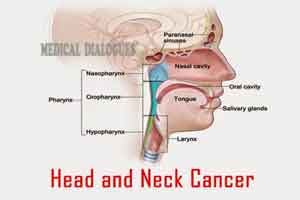- Home
- Editorial
- News
- Practice Guidelines
- Anesthesiology Guidelines
- Cancer Guidelines
- Cardiac Sciences Guidelines
- Critical Care Guidelines
- Dentistry Guidelines
- Dermatology Guidelines
- Diabetes and Endo Guidelines
- Diagnostics Guidelines
- ENT Guidelines
- Featured Practice Guidelines
- Gastroenterology Guidelines
- Geriatrics Guidelines
- Medicine Guidelines
- Nephrology Guidelines
- Neurosciences Guidelines
- Obs and Gynae Guidelines
- Ophthalmology Guidelines
- Orthopaedics Guidelines
- Paediatrics Guidelines
- Psychiatry Guidelines
- Pulmonology Guidelines
- Radiology Guidelines
- Surgery Guidelines
- Urology Guidelines
Physical Inactivity leads to higher risk of Lung, Head/Neck Cancers

Sedentary lifestyle has been associated with Hypertension, CAD, and T2 Diabetes Mellitus but now Dr.Kirsten Moysich Professor of Oncology at Roswell Park Comprehensive Cancer Cente and his two teams have identified a direct association between physical inactivity and two different types of cancer: lung cancer and head and neck squamous cell carcinoma.
The researchers used a large database of Roswell Park patients who had completed a questionnaire assessing their level of physical activity throughout adulthood. They compared those diagnosed with lung cancer or head/neck cancer with individuals who had come to Roswell Park with a suspicion of cancer but were determined to be cancer-free. Both studies found that those who reported no history of regular, weekly, recreational physical activity had a higher risk of cancer than those with a habit of at least one regular weekly session of physical activity.
“What is significant is that this increased risk was found even in people who had never smoked and were not overweight,” says Rikki Cannioto, PhD, EdD, MS, Assistant Professor of Oncology in the Department of Cancer Prevention and Control at Roswell Park and first author on both studies. “This adds to the growing body of evidence that, much like smoking or obesity, physical inactivity is an independent but modifiable risk factor for cancer.”
Although many studies have reported an association between physical inactivity and cancer, this is the first to systematically examine lifetime physical inactivity as an independent risk factor. “This different approach allowed us to identify the most sedentary segment of the population that is most at risk,” adds Iris Danziger, MD, Clinical Assistant Professor in the Department Otolaryngology at the Jacobs School of Medicine and Biomedical Sciences at the University at Buffalo, co-author of the study in head/neck cancer.
Considering that current reports suggest that the majority of Americans are not sufficiently active, these findings have broad and significant implications.
“The link between physical inactivity and cancer was consistently found in both men and women, normal-weight and overweight individuals, and among both smokers and nonsmokers,” adds Dr. Moysich. “Our findings strongly suggest that physical activity should be actively encouraged as part of a multidisciplinary cancer care, survivorship and prevention program.”
The lung cancer study, “Lifetime Physical Inactivity Is Associated with Lung Cancer Risk and Mortality,” was just published online ahead of print in Cancer Treatment Research Communications and is available at sciencedirect.com. The study of patients with head/neck cancer, “The Association of Lifetime Physical Inactivity with Head and Neck Cancer: A Hospital-Based Case-Control Analysis,” was recently published in the European Archives of Oto-Rhino-Laryngology and is available at springer.com.
The research was supported by the Roswell Park Alliance Foundation and by grants from the New York State Department of Health (project no. C019286) and National Cancer Institute (project nos. P30CA16056 and T32CA108456).

Disclaimer: This site is primarily intended for healthcare professionals. Any content/information on this website does not replace the advice of medical and/or health professionals and should not be construed as medical/diagnostic advice/endorsement or prescription. Use of this site is subject to our terms of use, privacy policy, advertisement policy. © 2020 Minerva Medical Treatment Pvt Ltd